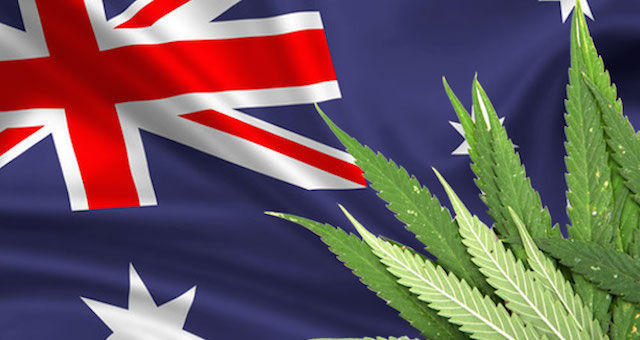Australian health fund becomes the first to offer medicinal cannabis rebates
One of the largest health funds in Australia has made history by becoming the first to ever publicly support medical cannabis use. The private health insurer, which is known as the Health Insurance Fund of Australia (HIF), revealed that it will be backing the plant’s medicinal use for a broad scope of debilitating conditions and diseases.
In order to grant medical cannabis patients in Australia the support they require, HIF intends on partnering with West Australian-based medicinal cannabis manufacturer Little Green Pharma (LGP). Australia’s medical cannabis rebates will cover CBD and THC-rich products.
“As a member-based health fund, our community is the motivation for everything we do, so assisting members through treatment options that can dramatically improve quality of life across different life stages is a key focus,” said the health fund’s CEO, Mr James.
Based on the terms of the deal, all but one of the HIF’s Extras policies will offer rebates for medicinal cannabis in Australia. Eligible members will gain a $105 rebate per script. No incident of this kind has been reported by the health fund sector before.
Australia’s medical cannabis patients are struggling to afford their medicine
Recent reports have demonstrated how many patients were pleased to hear the news of Australia’s medical cannabis rebate. One of them was a woman Rachel Crowther, who suffers from chronic migraines. In an effort to deal with her ailment, she has been using medical cannabis since June 2019. After self-medicating with the plant, she successfully managed to relieve her debilitating symptoms.
“That’s a huge improvement; it’s massive,” said Crowther, who claims that she can now sleep, function and “have a life I didn’t have.”
Before she began using the plant, the Australian medical cannabis patient would endure as many as three migraines per week. Crowther relied on alternative methods of medication, such as over-the-counter opioids like codeine, to ease her chronic migraine symptoms. Upon coming to the realization that she was using OTC meds as though she was “popping Smarties,” she turned to cannabis.
“I’ve tried everything, absolutely everything. I think every health company should come on board and make it affordable for everyone,” she urged. Many Australian medical cannabis patients would agree with Crowther, what with some forking out as much as $600 on a monthly basis for cannabis-based treatments.
The high price of medical cannabis in Australia is pushing many to buy from black market dealers. Despite being – in most cases – cheaper, illegal dealers don’t follow the same safety regulations as licensed pharmacies; including product testing for contaminants and heavy metals. Consequently, patient health is put at risk.
At the current time, there is no subsidy for cannabis products under Australia’s Pharmaceutical Benefits Scheme. Until this happens, Australian medical cannabis patients will still be somewhat restrained by the lack of access and research into this natural method of treatment.
Australia’s medical cannabis rebates could unlock local supply opportunities
According to Paul Hart, the executive director of a Sydney-based investment management and corporate advisory firm called Canary Capital, HIF’s rebates will not benefit all players in Australia’s medical cannabis industry. Nonetheless, improved sentiment will help to strengthen biotechs like Incannex.
“Definitely the attitude towards cannabis use for medicinal purposes is becoming more accepted,” Hart told reporters. “[It] certainly would help in the perception of any new drugs coming into the market.”
Currently, Incannex is in the process of carrying out a handful of clinical trials into the efficacy of cannabinoid-based medications. Perhaps one of the most relevant trials that is currently taking place focuses on the prevention of acute respiratory distress syndrome (ARDS) — a common cause of COVID-19 deaths.
Conversely, the Chief Executive Officer (CEO) of Cannatrek, Tommy Huppert, shares a similar opinion. The CEO, whose company has already distributed more than 21,500 medical cannabis products among over 3,000 patients by means of 150 doctors and 350 licensed pharmacies, says that the situation is “a repeat of what happened with alcohol in the 1930s where it was a banned product.”
“Government regulated it, they handed out licenses and suddenly an industry grew up overnight and I think that’s where cannabis will also end up. We’ll have a highly regulated industry, we need doctors, producers, pharmacists, we need tons of research to be done which is happening. So I think it is very upbeat and exciting – that’s how we see it,” explained Huppert.
Huppert feels confident that Australia’s medical cannabis rebates will help to normalize the plant’s use. As a direct effect of this, he says that local supply options are sure to spike. Consequently, this will add some serious value to the market, which is expected to be worth $150 million next year. In 2019, the market was valued at $30 million.
“There’s only a few companies today which can release products in Australia,” Huppert added. “We still have a majority – well over 90 per cent – of products being imported. So this pivot from import to local manufacturing over the next 12 months with companies like ourselves being permitted, going through their R&D, releasing products on the market will certainly make the supply chains easier.”








